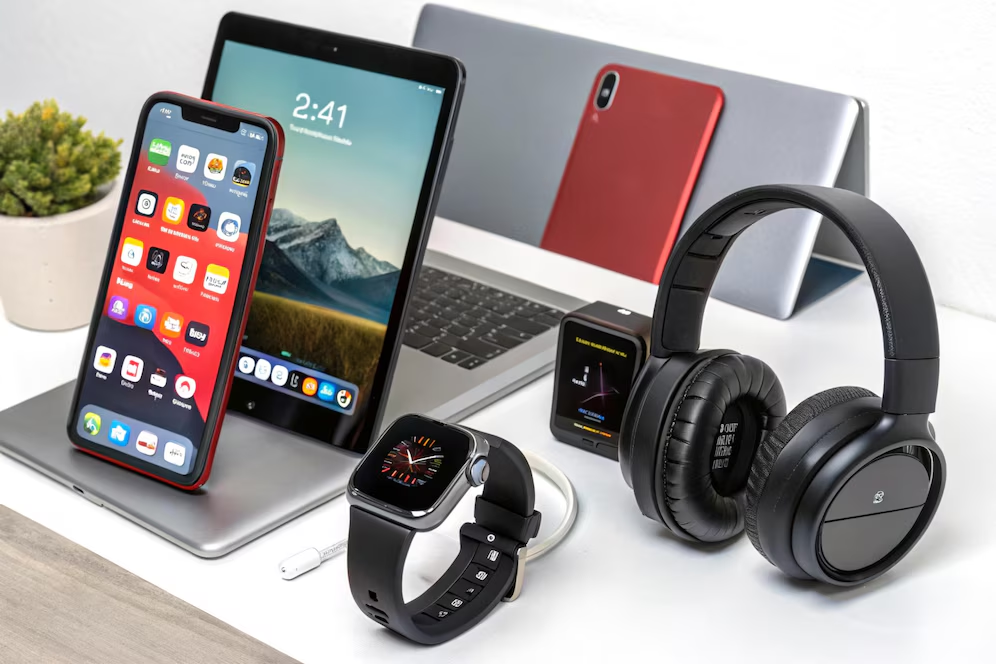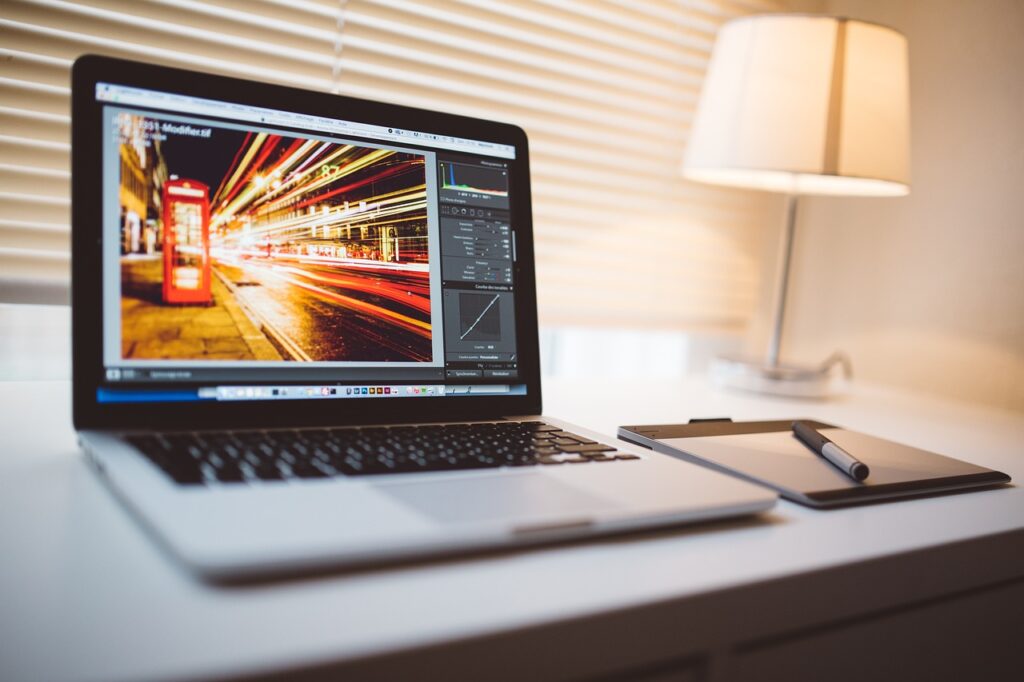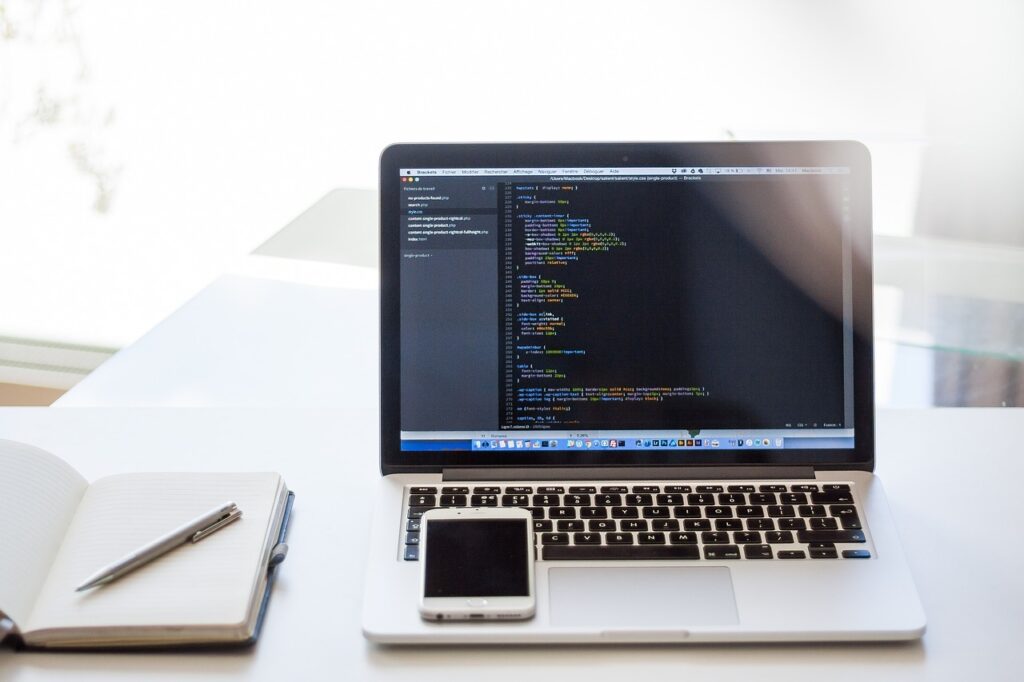Organic Comparison of Laptop Vs Smartphone For Work
To build strong bridge among understandings, this Laptop vs Smartphone blog explains why it is important to switch devices in need. May be you are spending lot of time on a device that costs more, consume more power and is less productive. Likewise, you would may never have thought that extra distractions bring extra stress. To avoid this, every Technology user need to know where to focus and how to get the most in lesser timeframe. For this reason, this blog is written for awareness, productivity and healthcare of the laptops and smartphone users.
Ever thought about From the invention of electricity and electronics devices to spirituality and concept mapping, human beings remained focused on work efficiency and accuracy. It helps maintain flow with as much speed as possible in times of innovation and creativity. In this blog, we discuss what are the roles of laptops, where we can take help from smartphones, what are the costs of using each devices. What are the effects and vibes of each device. From Screens to accessories and performance, all essential details are provided in this blog for our readers and visitors.
Laptop Display Vs Smartphone Display
With smaller display size, smartphones are classified as highly portable and accessible devices. Whereas laptops with bigger screens & physical keyboards considered as less portable. It also requires more energy having more processing power. Comparative, both have huge difference when it comes to personal and professional usages. Each comes with its individual strengths. Laptop is generally created to perform more tasks thus consume more power, while smartphone design makes it energy-efficient for limited activities, particularly, due to smaller screens, more battery life and less powerful hardware.
Generally and specifically, Laptop display requires more eye movement which is often neglected. But it also useful for managing multiple tasks at a time. its a convenience unlike smartphone. which is created for one task purpose such as calls, message, photos. Similarly, it is created to carry without much efforts, and can be fit in the pocket or hand. Using laptop makes eye move from one corner to another corner on the screen. It takes more energy, time and speed to perform any specific task as compare to the smartphone. However, both have been designed and developed for particular Purposes in mind. Here is the general comparison table of data usage for companies and data scientists.
Comparison of data usage between laptops and smartphones
| Task | Laptop Data Usage | Smartphone Data Usage |
|---|---|---|
| Browsing & Streaming | Higher, due to larger screens and higher resolution videos | Lower, optimized for smaller screens and lower resolution |
| Email & Communication | Higher, especially with large attachments and rich media | Lower, with smaller attachments or optimized apps |
| Cloud Storage/Syncing | More data used with frequent syncing of large files | Less data used, but can be significant with frequent syncing of apps |
| Software Updates | Larger updates, higher data consumption | Smaller updates, but frequent app updates can add up |
| General Usage | Consumes more data overall due to heavier tasks | More efficient, but can still use significant data for active apps |
Laptops and smartphones are essential tools for modern users, offering mobility, connectivity, and productivity on the go. Laptop users often include professionals, students, and creators who need powerful computing for work, study, or content creation. However, Smartphones, on the other hand, cater to a broader audience, from casual users to business professionals, enabling communication, entertainment, and instant access to apps and online services. Both devices support multitasking, cloud access, and social interaction. As , Today’s users value speed, battery life, design, and ecosystem integration. As technology evolves, users increasingly demand smarter, faster, and more efficient devices for their daily digital lives
Worldwide users of laptops and smartphones : Laptops vs Smartphones
| Device | Estimated Global Users (2024–2025) | Growth Trend | Primary Use Cases | Source |
|---|---|---|---|---|
| Smartphones | ~6.9 billion users | Rapid growth, especially in developing countries | Communication, social media, apps, browsing, mobile work | Statista – Smartphone Users |
| Laptops | ~1.5–2 billion users | Steady but slower than smartphones | Professional work, content creation, gaming, development | Statista – PC Shipments |
Summary:
Laptops are fewer in number but are preferred for tasks requiring more processing power and screen space. Also it makes work easier.
Smartphones dominate in terms of number of users due to affordability, portability, and essential communication features. Also its a moving comapanion.
Where Smartphones Fall Short
Despite their strengths, smartphones are not built for heavy workloads. Complex spreadsheets, programming environments, detailed graphic design, and even multitasking between browser tabs become frustrating on small screens. They’re best for quick access, not in-depth work sessions.
Also, battery life under continuous work (like long video calls or document editing) drains rapidly on smartphones, whereas laptops often handle such tasks more efficiently.
Laptops vs Smartphones : Mindfulness and Agility
Smartphones contribute to mental agility—the ability to react quickly, adapt, and stay organized. Likewise the ability to handle micro-tasks on the fly offers a sense of control and peace of mind, especially for busy professionals juggling multiple roles.
Similarly, When used mindfully, smartphones can reduce work anxiety by helping you stay on top of reminders, communication, and deadlines—even while away from your desk. However, smartphones can be considered for convenience.
Smartphones Are Best For:
- Communication (calls, chats, emails)
- Scheduling and calendar management
- Social media handling
- Scanning and sending documents
- Quick remote access or approvals

Table of Contents: Best Smartphones in 2025
- Budget Smartphones
- Mid-Range Smartphones
- Flagship Killers
- Most Powerful Smartphones in the World
- Trusted Smartphone Brands
- Gaming Smartphones
- Camera-Centric Smartphones
- Business & Productivity Phones
- Compact & Foldable Phones
- 5G Smartphones
- Best Smartphones for Students
- iOS vs Android Phones
- Long Battery Life Phones
- Top Smartphones for Creators & Influencers
- Smartphone Buying Guides
Laptops: Deep Focus and Flow State
Using a laptop allows professionals to enter a “flow state” of deep work. For this, The immersive environment of larger screens and dedicated software helps reduce distractions and improves mental focus. Since Studies show that working in such a flow can dramatically enhance cognitive performance and mental satisfaction. However, Among The best laptops vs smartphones, what you choose is your choice.
Table of Contents: Best Laptops in 2025
- Budget Laptops
- Mid-Range Laptops
- High-End & Premium Laptops
- Best Laptops for Students
- Best Laptops for Business & Professionals
- Gaming Laptops
- Content Creation & Video Editing Laptops
- Ultra-Portable & Thin Laptops
- 2-in-1 Convertible Laptops
- MacBooks vs Windows Laptops
- Long Battery Life Laptops
- Laptops for Programming & Development
- Top Business-Class Laptops (ThinkPad, EliteBook, etc.)
- Most Trusted Laptop Brands
- Laptop Buying Guides 2025

Laptops vs. Smartphones for Work Productivity:
comparison table
| Feature | Laptop | Smartphone |
|---|---|---|
| Portability | Less portable (requires a bag, etc.) | Highly portable (fits in pocket or bag easily) |
| Screen Size | Larger screen for multitasking and detailed work | Small screen, less efficient for complex tasks |
| Typing Efficiency | Full-sized keyboard for faster typing | On-screen keyboard, slower for extended typing |
| Multitasking | Multiple windows can be open simultaneously | Limited multitasking, usually one app at a time |
| Power and Performance | High performance for demanding applications | Limited performance, not suitable for heavy tasks |
| Software Access | Full desktop applications (e.g., MS Office, Adobe) | Mobile apps with fewer features |
| File Management | Easier file management, larger storage capacity | Limited storage, less flexible file management |
| Battery Life | Longer battery life with intensive tasks | Shorter battery life under heavy use |
| Communication | Best for long video calls, meetings, and emails | Great for quick communication, instant messaging |
| Ergonomics | More comfortable for extended work sessions | Can cause strain if used for long periods |
| Cost | Generally more expensive | More affordable, especially for basic models |
| Ideal Use Case | Content creation, coding, data analysis, design | Quick tasks, communication, note-taking, meetings |
| Psychological Benefit | Promotes deep focus and immersion in tasks | Promotes agility, quick responses, and mindfulness |
This table provides a quick comparison between the two devices, highlighting their strengths and ideal use cases for work productivity.
Summary: Laptops Vs Smartphones
- Smartphones dominate in terms of number of users due to affordability, portability, and essential communication features.
- Laptops are fewer in number but are preferred for tasks requiring more processing power and screen space.
Certainly! Here’s your conclusion with headphones added and highlighted internal links, as well as placeholders for inbound and outbound links:
When comparing laptops vs. smartphones, it’s clear that both devices have distinct advantages based on the user’s needs. Laptops, with their larger screens and full-sized keyboards, provide a more comfortable environment for productivity, multitasking, and working on complex projects. Furthermore, they offer higher performance, especially when handling demanding applications like video editing laptops or gaming laptops. In addition, laptops typically provide more storage space, making them ideal for users who need to manage large files, and accessories like external hard drives for laptops can further enhance storage capacity.
On the other hand, smartphones excel in portability and convenience. With their lightweight design, they allow users to stay connected and access information on the go. For quick tasks, social media updates, or communication, smartphones are incredibly efficient. Moreover, modern smartphones offer powerful processors and high-quality cameras, making them perfect for casual content creation and everyday tasks. Accessories like smartphone cases, wireless chargers for smartphones, and headphones, such as noise-canceling or Bluetooth models, enhance the user experience, especially for media consumption or virtual meetings.
In conclusion, the choice between a laptop and a smartphone ultimately depends on individual preferences and the nature of the tasks at hand. While laptops remain the go-to device for detailed work and long-term productivity, smartphones are unbeatable for their portability and ease of use. Therefore, it’s important to consider what suits your lifestyle best—whether you prioritize power and performance or mobility and convenience. For more tips on laptop accessories, smartphone productivity tools, or the best headphones for work and leisure, explore our related articles below.
Read our full guide on laptop accessories for work or Check out the best noise-canceling headphones on Amazon


